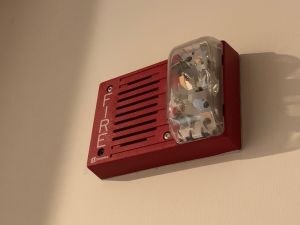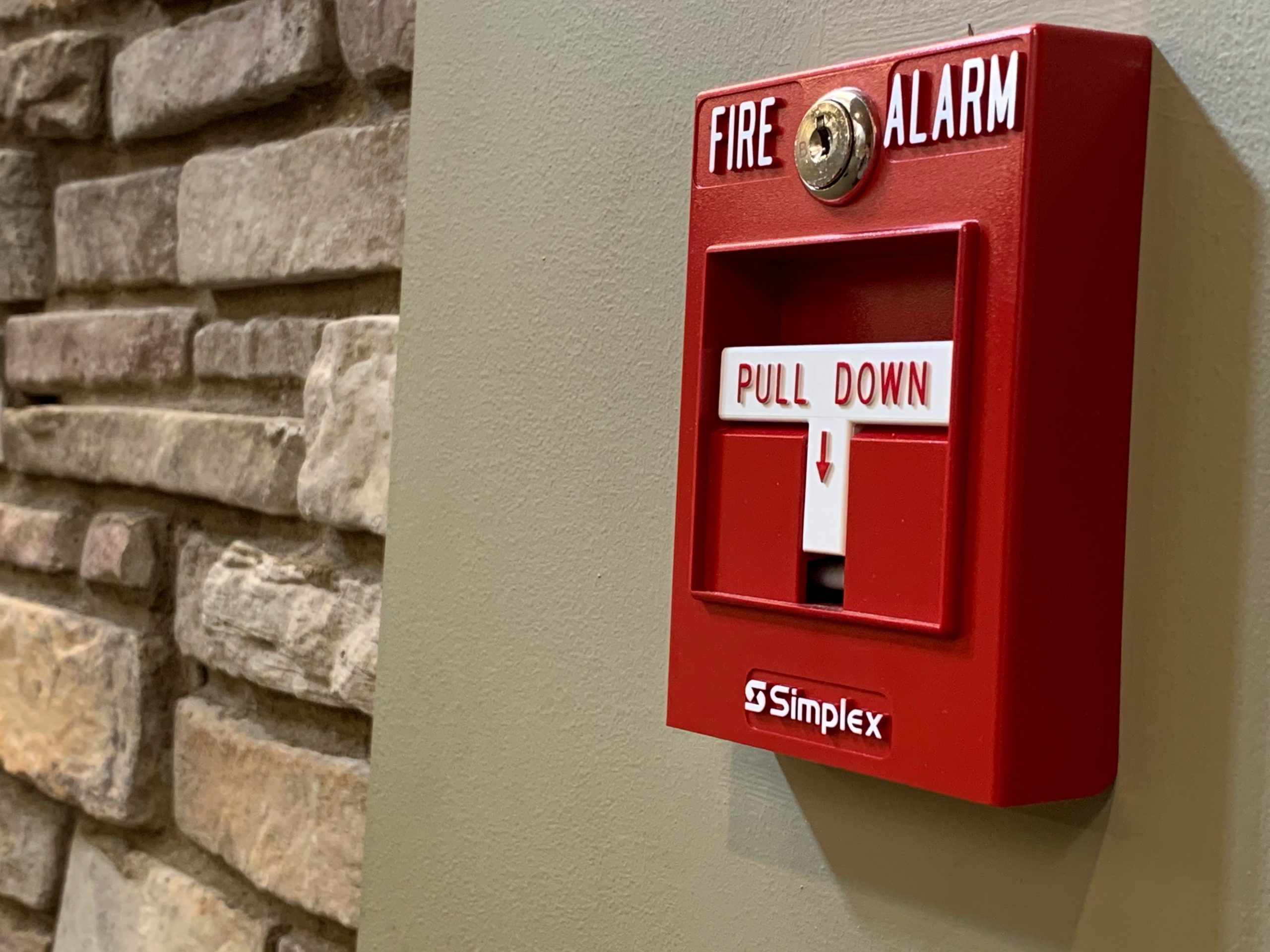Consistent incidents with students setting off the fire alarms will lead to penalties. According to the director of residence life, the repercussions for students who set off the fire alarms to many times in the dorm buildings can vary depending on the frequency of incidents.
“Most of the fire alarms that go off are due to some type of cooking or sometimes it could be students using an iron or something like that,” Brett Buckridge, director of residence life, said.
According to Buckridge, Residence Life doesn’t get more than one notice of the fire alarms going off from the dorm buildings. The most common reason for the fire alarms going off is because of cooking-related incidents. In those cases, Residence Life tries to take a more educational approach for students who accidentally set off the fire alarm.
“If it’s a true accident where students made a mistake…we try to talk to them and make sure they understand and most students learn the mistake because it’s embarrassing to them,” Buckridge said.

Residence Life, along with Public Safety, will typically have a side conversation with those students to make sure the students understand their mistakes. However, if the fire alarm was set off due to a student’s negligence, such as leaving a kitchen stove on and unattended, then there would be more serious consequences for that student because, according to residence life, the incident could have been avoided.
Some of those consequences include having Public Safety lecture students about fire safety and its importance, cooking lessons from a cafeteria staff member or setting up programs with residence assistants (RAs) to teach students how to cook if it’s a common occurrence on a particular floor or in a specific building.
“Part of the concern isn’t just the fire alarm and the fire safety but if too many alarms go off for minor things, then, when it’s an actual fire, people may not leave. It creates kind of a ‘cry wolf’ situation,” Buckridge said.
The level of repercussions depends on the frequency of causing a fire or severely burning something. As Residence Life has explained, the first time is considered an accident. The second time is a coincidence. However, if a student sets off the fire alarm three or more times, then more serious consequences will go into effect for those students as previously mentioned, such as mandated cooking lessons.
Many students who are residents on campus have expressed their annoyance about how often the fire alarms go off due to people burning food or minor circumstances.

“I find it annoying,” Robert Okuhem, junior graphic design major, said. “I feel like they should learn how to cook better and stuff or maybe not cook specific things in order to set off the fire alarm.”
Okuhem isn’t the only student to feel this way about students setting off the fire alarm.
“[The fire alarm] doesn’t aggravate me that much, but I know a lot of people that it does aggravate,” Victoria Lepore, sophomore business management major, said.
Lepore lives on campus in Dixon House, also known as House 2, and discussed how the fire alarm went off a few times in the previous semester, but she believes that it has not gone off as much compared to other dorm buildings.
Lepore also believes that students who constantly burn food should be required to take cooking classes because she believes that cooking is a useful life skill and college could help those who struggle to cook.
“I feel like cooking is kind of something that everybody should know how to do,” said Lepore. “I mean, when you go out into the real world, you’re going to need to know how to cook for yourself…Unless you want to be eating cereal and stuff every day.”



